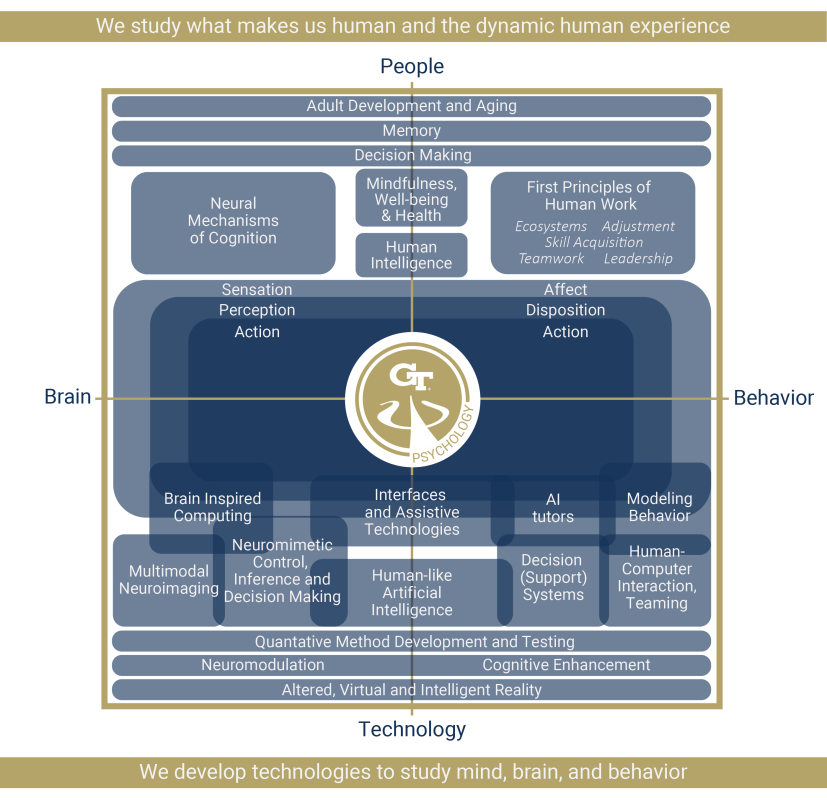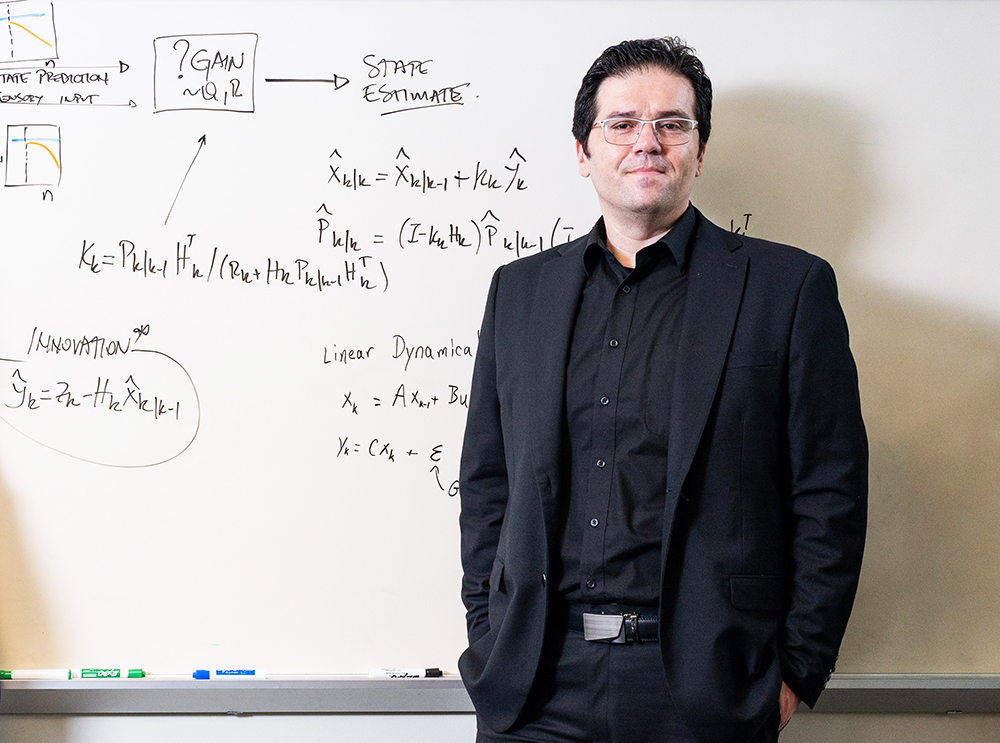
The School of Psychology at Georgia Institute of Technology is dedicated to advancing psychological science through cutting-edge interdisciplinary research, multidisciplinary education, and impactful community engagement. Our faculty, students, and staff strive to promote scientific understanding of the human brain, cognition, mind, and behavior.
We are committed to translating knowledge on the organization of brain and behavior to improve human condition and well-being, inspire future technologies and address global challenges. Our programs emphasize rigorous quantitative training, critical thinking, and hands-on experience, preparing students for leadership roles in academia, industry, and public service. By fostering collaboration and shared knowledge, we aim to empower society as a whole, ensuring that discoveries in brain, cognition, and behavior lead to a more informed, innovative, and thriving world.
The School's research and educational programs help study what makes us human and mechanistically describe the dynamic human experience. We achieve this by bringing experts from complementary disciplines together to innovate at the intersection of two continua (see figure) that are foundational (topical) pillars of leading technical universities worldwide.
As you roam our webpage, you’ll notice that psychology at Georgia Tech is rather unique in a number of ways. You already know that we are embedded in one of the world's leading science and engineering institutions of higher education. Unlike many of our peers, our home college is the College of Sciences, which also houses the likes of Chemistry, Physics, Biology, and Math. You’ll see we have a structure of 5 programs that help us manage the research efforts and provide focused training to our graduate students, but I can tell you that all of the faculty move easily between areas. Finally, you may notice that we are small, intentionally. It allows us to focus our research and our training in a way that has made us exceptional.

We train our graduate students not only to contribute to psychological science but to lead it. We offer specializations at the graduate level headed by world-famous faculty in the nation’s number 2 ranked Industrial-Organizational Psychology (Work Psychology) and the internationally known program in Engineering Psychology (Human Factors). Faculty in both I/O and Engineering Psychology collaborate through the Work Science Center founded in Psychology. Our Cognitive Aging program has led the field for decades and hosts the foremost conference on Cognitive Aging. The cognitive and neurological fundamentals of being a human being are the province of our Cognitive and Brain Systems program, our largest group of faculty. Psychologists manage the on-campus Center for Advanced Brain Imaging (CABI), which houses state-of-the-art fMRI facilities. Many of these faculty also contribute to our Cognitive Aging initiatives. Faculty in these two areas are active in the School’s Optimal Aging initiative. Finally, the formal backbone of all our work is mathematical modeling and statistics, and this is well represented in our Quantitative Psychology program. In addition to strong central faculty, many faculty from other areas lend their expertise to help train quantitative doctoral students.
As you’ll see, we have no Clinical or Counseling graduate program. In fact, we are one of only 14 Carnegie-1 (high research activity), public, Ph.D. granting departments that have chosen not to offer a clinical or counseling specialty. However, we certainly prepare our undergraduates broadly, and many gain admission to graduate programs in clinical, counseling, and school psychology graduate programs. Focusing on our 5 programs has allowed us to leverage our unique position in a College of Science in a world-class technological institution.
We are especially proud of our undergraduates. They are bright, dedicated, and creative. Our undergraduate student: faculty ratio is a remarkable 5 to 1. This allows us to offer each and every major as personal an experience with psychological science and research as she or he desires. We have relationships with the campus clinic and are working on developing relationships with campus well-being groups, including the Campus Rec Center. Undergraduates conduct research in local hospitals, with local industries like ESPN and Coke, and on and on. Almost every undergraduate conducts research in a laboratory before graduating, and many complete a senior thesis as a capstone experience. Whether the student’s ultimate goal is medicine, law, clinical psychology, or science, training at the Georgia Tech School of Psychology puts the student at the center.
—Tansu Celikel, Professor and Chair, School of Psychology


